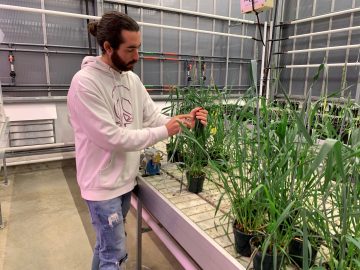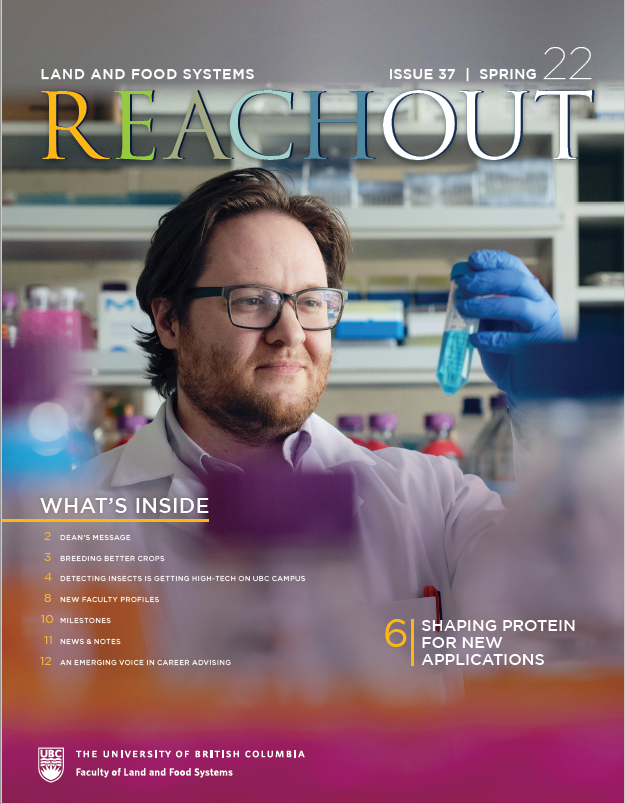Breeding Better Crops

Vincent Fetterley has loved the outdoors for as long as he can remember.
Now an MSc student in Plant Science, Fetterley recalls growing up with huge, elaborate gardens that his parents and grandparents maintained in Montreal.
“I remember all summer long, I would just chill in the garden, eat food right off the plant, and be amazed at all the insects there,” says Fetterley. “I was always into nature and felt peaceful with the plants.”
Fetterley completed his undergrad at the University of Montreal, studying biology with a focus on ecology, evolution and the environment. It was not until second year, when he discovered the world of plant science and biotechnology, that he found his motivation to pursue graduate school.
A road trip from Quebec to B.C. to visit a friend solidified his decision to go to UBC in particular. Fetterley spent three months exploring the province and enjoying the outdoor activities he has loved since childhood.
Fetterley currently works in the Crop Pathology and Genetics Lab with Assistant Professor Gurcharn Singh Brar as his supervisor. He credits Brar for always being present for his students, giving guidance not only on projects, but their career as well.
Fetterley’s research focuses on resistant genes in wheat against stripe rust, a fungal pathogen that affects wheat crops all around the world.
“We have spelt wheat that is resistant to stripe rust and I’m trying to find the genetic basis of this resistance in order to use it in modern day cultivars that are high-yielding,” explains Fetterley.

Fetterley sees his current research as bringing together his personal and academic interests in ecology and environment, and combining those with genetics and molecular biology. With wheat being the largest crop in Canada, it was the perfect plant to focus on.
“I tried to a find a way to do research that has a good impact on the environment and ecological system in general, but also where I could use genetics and biotechnology,” says Fetterley. “Once you have the resistant gene, you can rely less on fungicide.”
For the future, Fetterley is looking forward to when the tools and technology produced from the research become accessible to the public. “We’re going to be able to really improve crops and diminish the impact of the environment when it comes to things like drought or pathogens on the food system, and have a more effective way of making food without relying too much on chemicals.”
Tagged with: 2022, Graduate, Plant Science
